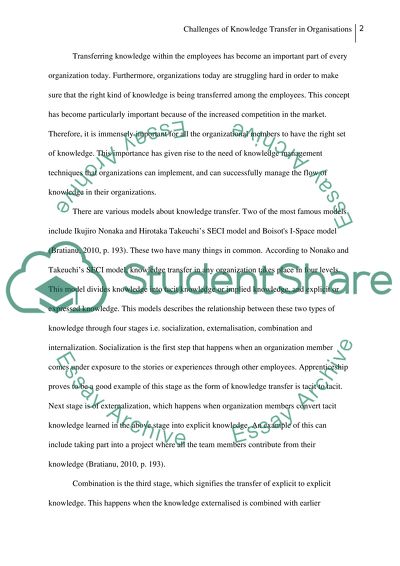Challenges of Knowledge Transfer in Organisations Literature review. Retrieved from https://studentshare.org/information-technology/1451243-challenges-of-knowledge-transfer-in-organisations
Challenges of Knowledge Transfer in Organisations Literature Review. https://studentshare.org/information-technology/1451243-challenges-of-knowledge-transfer-in-organisations.


